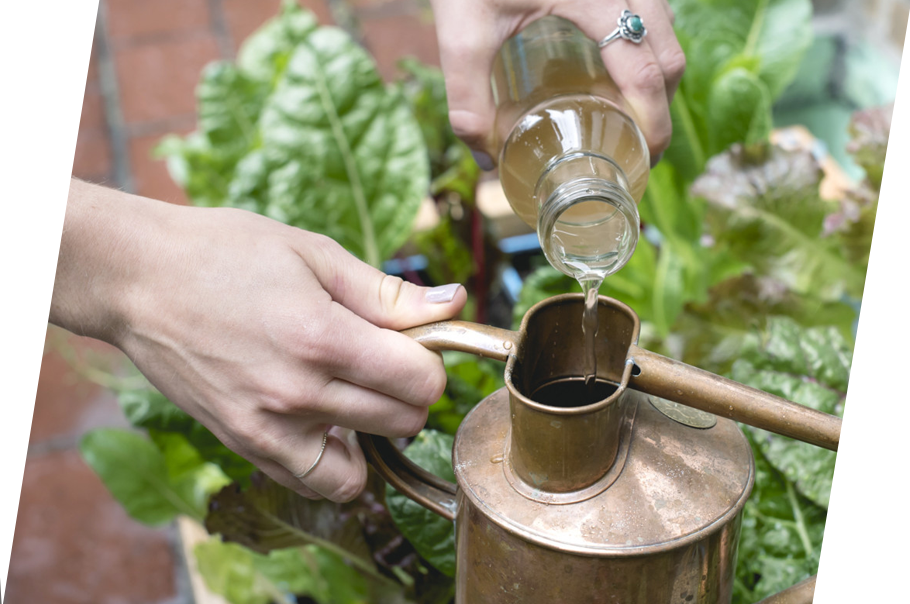Natural Wood Vinegar
Wood Vinegar, also called Pyroligneous acid, Liquid Smoke or Mokusaku, is a dark liquid produced through the natural act of carbonization, which occurs when a biomass is heated in an airless container during charcoal/biochar production.
The exhaust smoke from this charcoal production is condensed (cooled) into a liquid – this condensate then further separates into Tar, Vinegar and Bio-Oil.
The high acidity


Sustainable Supply Source

Reduces Chemical Dependency

Increases Seed Germination

Replaces Chemical Fertilizers

Wood Vinegar Used to Repel Insects
Wood Vinegar has been widely used to repel insects from plants and households in Thailand and it is easy to find pyroligenous products marketed on the Internet as an insect repellent. Efficacy of wood vinegar as an insect repellent has not been widely studied or published and thus the scientific evidence is minimal. However, Strong in 1973 reported good results when wheat seed were treated with hardwood tar oil to repel birds, rodents, and insects. Hardwood oil was also found to be toxic to all the tested insects. Very similar effects were found when pyroligenous acid was used for controlling insects from sweet corn plots. Wood tars pyrolysed from alder, larch and birch were effective repellents for control of the vole(Clethrionomys rufocanus bedfordiae) in an experiment in Japan. In addition, scientific evidence reported in Finland demonstrated that birch tar oil effectively repelled slugs (Arion lusitanicus) and snails (Aranta arbustorum).
How does Wood Vinegar Work?

